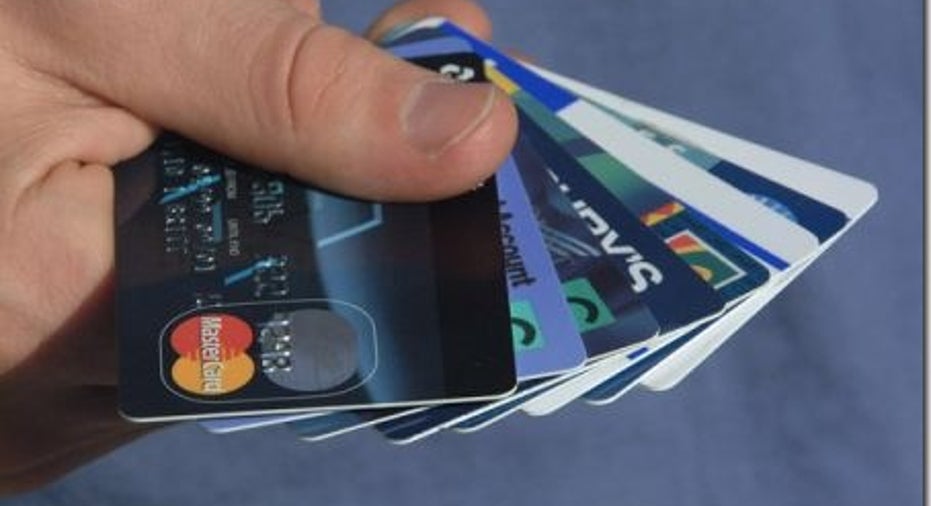What to Consider Before Canceling Your Airline Miles Card

Dear Cashing In,
I was recently treated pretty shabbily by a major airline -- which I won't name -- and I'd really like to dump their credit card and start building miles on another airline. Problem is that the card is my oldest card and I don't want to hurt my credit or lose miles by dumping it. I could just keep it open and not use it, but I really don't want to pay an annual fee on a card that I don't really use. Right now, I'm just leaning toward keeping the card and holding my nose. What would you suggest?
- Frustrated Flier
Dear Frustrated Flier,
You're right that canceling your oldest credit card will impact your credit score to some degree. You really have two decisions to make. One is whether to drop a longstanding card, which is something of a math problem. The other is whether to change your airline loyalty. It sounds like you've made that decision, but you might want to allow yourself a test period with your new airline of choice -- especially since the credit card connected to that change is tied to your credit history.
If there was no annual fee, I'd say stash this card for now. There is one, however, so the fee should be taken into account. If you really do stop using the card completely, it doesn't make sense to keep paying a hefty annual fee. Let's say the annual fee is $120, for example. If you cancel the card, you could use that extra $10 per month to pay off debt rather than an annual fee. That's likely a better use of your money and a better move overall for your credit score.
If it's something like $39, on the other hand, and you're able to come up with that fairly easily, you might consider holding onto the card long enough to build your credit elsewhere.
You should also take into account the credit limit on that card. Credit scores are based in part on what's called your credit utilization rate -- the amount of debt you have compared to your available credit. The lower the rate, the better. It works like this: If you have a credit limit of $5,000 and you owe $1,000, you're utilizing 20% of your available credit. That's a really good rate.
However, if you close one card and open another with a lower credit limit, it can make a big difference. If your credit limit drops -- say from $5,000 to $2,500 -- your utilization rate jumps to 40%, which hurts your credit score and makes you look like a bigger risk to a lender.
The fact that the card is your oldest one matters, too. If you're still establishing credit and that card is the pillar of your credit history, you might want to hold onto it. However, since a card with no negative information -- such as a late payment, for example -- associated with it can stay on a credit report for 10 years, this may be less of a concern. After all, you can spend that decade building perfect credit on a new card and your credit score will likely be just fine when the canceled card finally falls off your report.
It might also pay off to be patient. Holding off for a year on cancelling the card will give you time to compare airlines. The airline industry is in a state of flux. All the major airlines are struggling and having to make significant adjustments to stay afloat. As you may know, Continental merged with United in 2011, impacting both airlines' loyalty programs, and American Airlines declared bankruptcy in late 2011. Even the most stalwart airlines are being forced to take drastic measures.
This time next year, you might find yourself just as dissatisfied with the other airline while the one you abandoned has begun offering new incentives. Also, your location may make it difficult to transfer loyalty if your city is a hub for the other airline.
If you do cancel the card, you likely won't lose the miles you've accrued unless they expire. That's because the miles are maintained by the airline's frequent flier program, not the credit card issuer. (One major exception: If you were using a generic airline miles card, such as a Capital One card that gives points that can be used on any airline, those could disappear when the card is canceled. Those miles are maintained by the bank, not the airline.)
Holding onto that card for a while will probably keep your miles from expiring, giving you time to use whatever rewards you have coming. (Holding a fee-charging card connected to United or Continental's MileagePlus, for example, will keep your miles active even if you don't use the card.) Most major airlines set the clock for 18 months after you cancel a card or stop using your rewards, meaning miles begin to expire then. (If your current loyalty is with Delta, that's not an issue since their miles don't expire.)
At any rate, canceling a longstanding credit card is not something I would make an emotional decision about, based on one bad experience. I think most frequent fliers can claim that with just about any major airline.



















